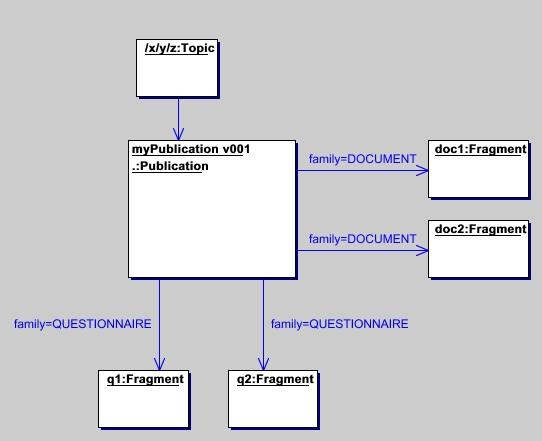 |  |



 |  |


 |  |




 |  |  |
 |  |  |
 |  |
|
 |  Main Main |  |
 |  Insight Insight |  |
 |  Concepts Concepts |  |
 |  |  |
 |  |  |
 |  |
|
 |  Publications Publications |  |
 |  Annotations Annotations |  |
 |  News News |  |
 |  |  |
 |  |  |


Publications are sets of content items. Basically, a Publication can be a whole static web site (with .HTML pages and .JPG pictures), or a set of XML files, to be processed later by Spirit.
The content items are named Fragments. They can be anything, since fragments are binary content.
Publications are Topic-related. For a Topic named "toothbrush", there can be several Publications, each one corresponding to a particular version of the "toothbrush" Topic.
In order to ease content access, Topics describe a hierarchical order. For example, the Topic "toothbrush" may have "teeth cleaning" for Parent Topic.
An essential thing to keep in mind is that, once a Publication is flagged "frozen", its content cannot be changed anymore. The only way to make a change is to create a new Publication in the same Topic.

Here is an example of Publication instantiation. It illustrates the use of the Family tag, which indicates that the Fragment is of a particular kind. In the example below, the Family tag is used to describe that a Fragment is a Questionnaire.
One can guess that Spirit application has a special handling for Questionnaires (with user interaction, answer storage, and so on).

